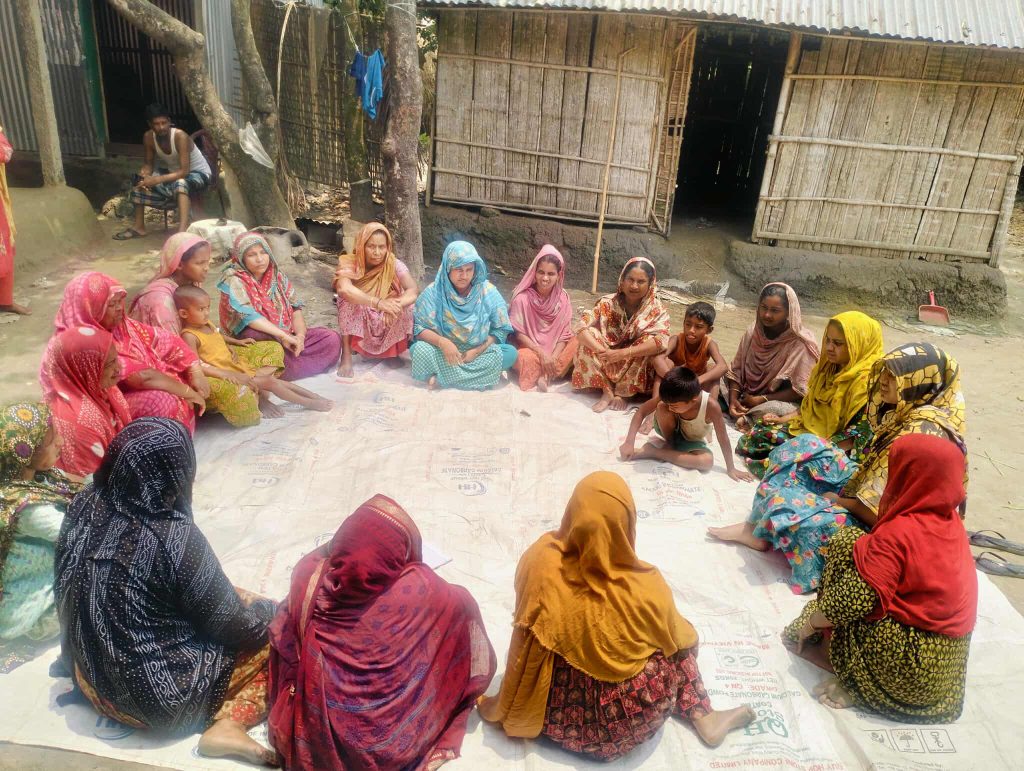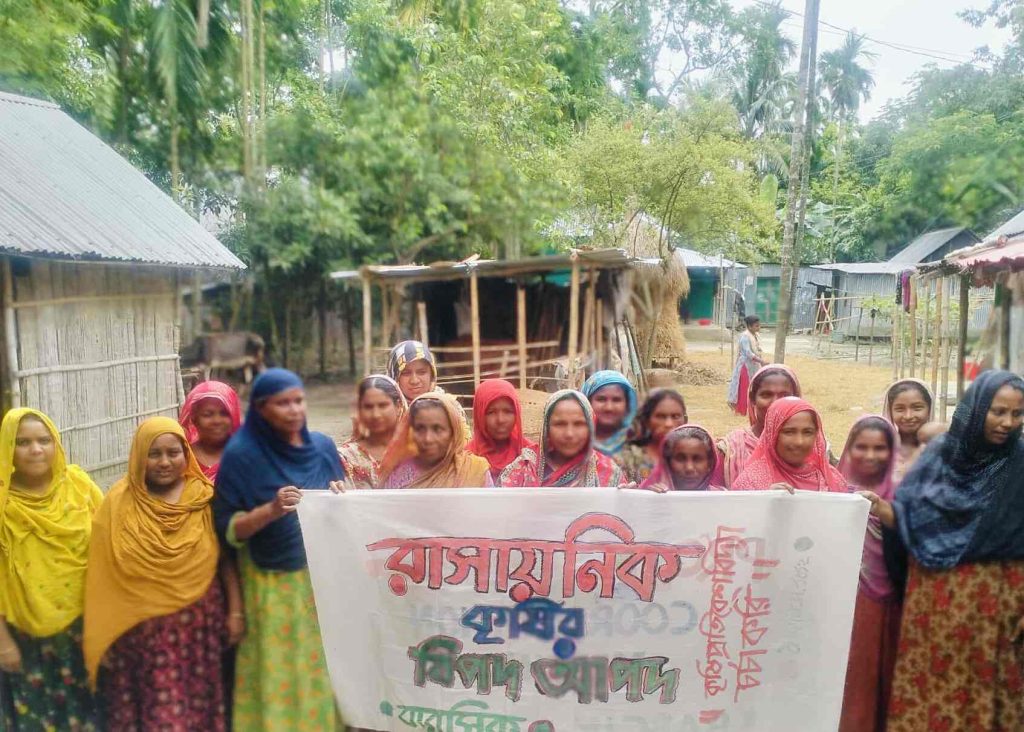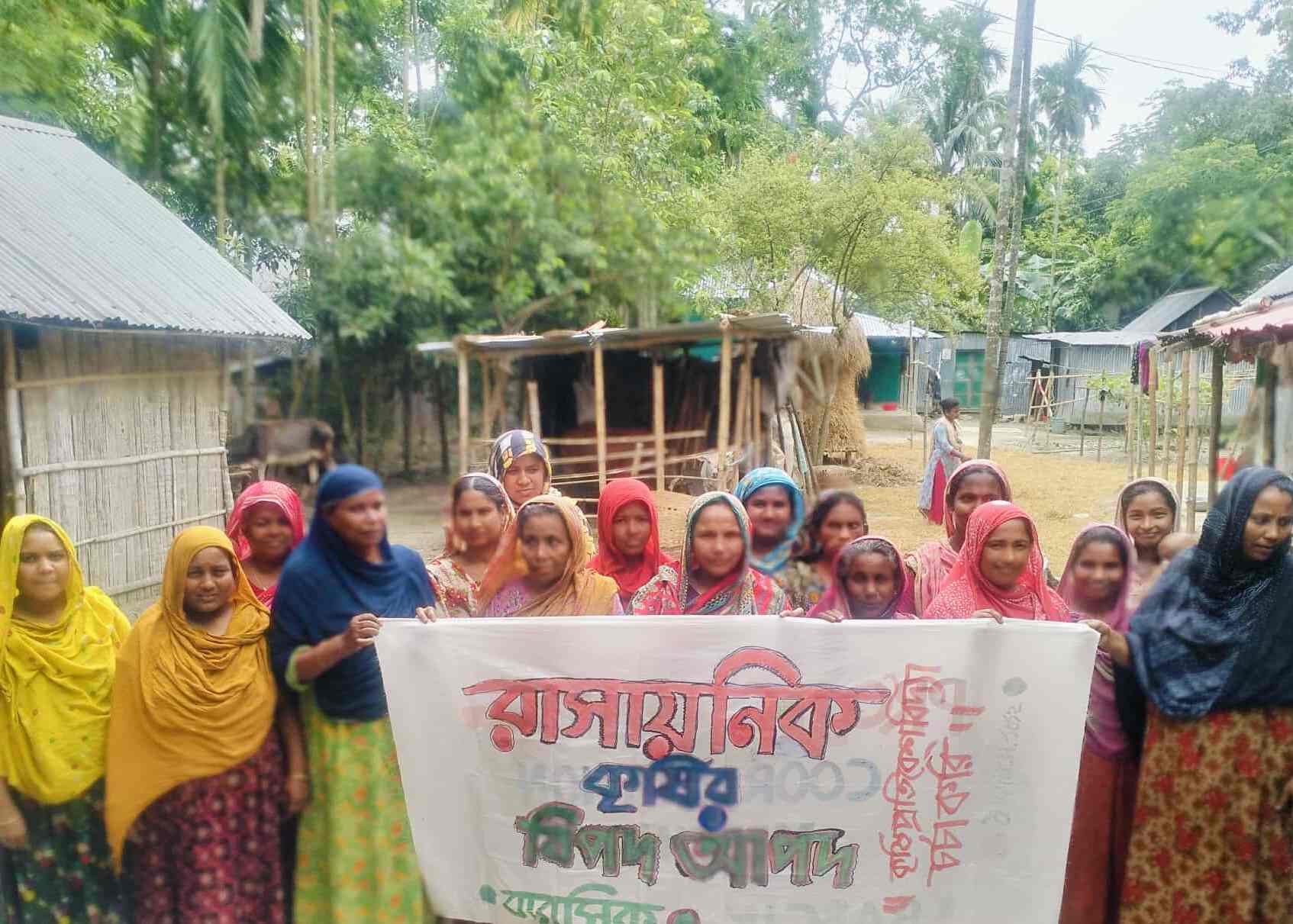By Rokhsana Rumi from Netrakona
A rural discussion session titled “The Dangers of Chemical Agriculture” was recently held at the Shotobari (Women led nutrition houses ) of Sahana Akter in Bichipara village, under Kailati Union of Netrokona Sadar Upazila. The event, aimed at raising public awareness for a “sustainable solution to agriculture and environment,” was organized with the support of BARCIK.

Members of the Jarul Women Farmers’ Group and other local women participated in the discussion. Key speakers included Agricultural Extension Officer Majeda Akter and agroecology learning center supervisor Abul Kalam from Mouzebali village.
Majeda Akter emphasized the need for collective action saying, “A social movement against chemical use in agriculture is essential. Farmers are increasingly suffering from life-threatening diseases like cancer due to pesticides and chemical exposure. The use of toxins must be gradually reduced. Excessive pesticide use in paddy cultivation, vegetable farming, fishing, and pest control is harming not just crops, but also the environment, biodiversity, soil, water, air, and human health.”
She went on saying, “The growing use of chemicals is contaminating our food, soil, air, and water. Biodiversity is being depleted, and people are falling prey to deadly illnesses. To escape this crisis, we need strict policies and community-driven action. Practicing agroecology can help reduce our dependence on toxic chemicals.”
Farmer and homestead manager Sahana Akter said, “We have destroyed the health of our soil by using toxic pesticides. Our land is no longer what it used to be. To save it, we must stop using pesticides, insecticides, and chemical fertilizers.”

Abul Kalam, the supervisor of the agroecology learning center in Mouzebali village said, “We have made our soil ‘angra’ polluted and unclean. It is now filled with chemicals and plastic. Earthworms have disappeared, and soil quality has dropped. Yet, we depend on this very soil for survival. If we want to live, we must take care of it.”
The overarching message from the discussion was clear: our soil is sick, and unless we reduce chemical use in agriculture, we risk turning our fertile lands into toxic deserts. The future of human civilization depends on restoring the health of the land through sustainable, eco-friendly practices.

